10 Best Herbal Capsules For Peptic Ulcers
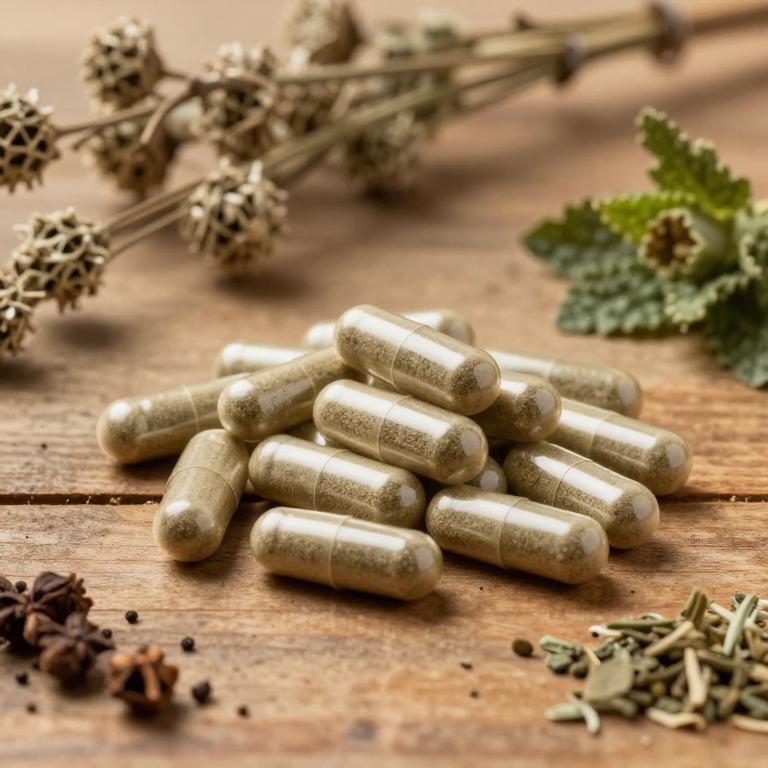
Herbal capsules for peptic ulcers are increasingly being used as complementary or alternative treatments to conventional medications, offering a natural approach to healing gastric lining damage.
These capsules often contain ingredients such as licorice root, ginger, and aloe vera, which are believed to have anti-inflammatory and mucosal protective properties. While some herbal remedies may help reduce stomach acid and promote ulcer healing, their efficacy and safety can vary, and they should not replace medical advice or prescribed treatments. It is important for individuals to consult with a healthcare provider before using herbal capsules to ensure they are safe and appropriate for their specific condition.
Overall, herbal capsules can be a valuable addition to a holistic treatment plan when used under professional guidance.
Table of Contents
- 1. Peppermint (Mentha piperita)
- 2. Ginger (Zingiber officinale)
- 3. Thistle (Silybum marianum)
- 4. Turmeric (Curcuma longa)
- 5. Chaste tree (Vitex agnus-castus)
- 6. Licorice (Glycyrrhiza glabra)
- 7. Camellia (Camellia sinensis)
- 8. Cumin (Cuminum cyminum)
- 9. Black pepper (Piper nigrum)
- 10. Marshmallow (Althaea officinalis)
1. Peppermint (Mentha piperita)

Mentha piperita, commonly known as peppermint, has been traditionally used for its soothing properties, and its herbal capsules are often considered for managing symptoms associated with peptic ulcers.
These capsules contain concentrated extracts of the peppermint plant, which may help reduce gastric acid secretion and ease digestive discomfort. While peppermint oil is known to relax the muscles of the digestive tract, its effectiveness in healing ulcers specifically requires further scientific validation. Some studies suggest that mentha piperita may have anti-inflammatory and antimicrobial effects that could support ulcer healing, though it should not replace conventional medical treatment.
As a complementary therapy, peppermint herbal capsules may offer relief from mild symptoms but should be used under the guidance of a healthcare professional.
2. Ginger (Zingiber officinale)

Zingiber officinale, commonly known as ginger, has been traditionally used for its digestive and anti-inflammatory properties.
Herbal capsules containing zingiber officinale are often considered as a natural remedy for peptic ulcers due to their ability to reduce stomach acid and protect the gastric lining. Studies suggest that ginger may help in the healing of ulcers by promoting the production of mucus that coats the stomach lining. However, while some research supports its use, it is generally recommended to consult a healthcare provider before using ginger supplements for ulcers, as they may interact with other medications.
Overall, zingiber officinale herbal capsules can be a complementary therapy but should not replace conventional medical treatments for peptic ulcers.
3. Thistle (Silybum marianum)

Silybum marianum, commonly known as milk thistle, is a herbal remedy that has been traditionally used for its potential hepatoprotective properties.
While it is widely studied for liver health, its role in treating peptic ulcers is less established. Some preliminary research suggests that the active compound silymarin may help reduce inflammation and protect the gastric mucosa, potentially supporting ulcer healing. However, there is limited clinical evidence specifically linking silybum marianum capsules to the treatment of peptic ulcers.
As a result, it is often used as a complementary therapy rather than a primary treatment, and individuals should consult a healthcare provider before using it for ulcer-related conditions.
4. Turmeric (Curcuma longa)

Curcuma longa, commonly known as turmeric, has been widely studied for its potential therapeutic effects on peptic ulcers due to its anti-inflammatory and antioxidant properties.
The active compound in turmeric, curcumin, may help reduce gastric acid secretion and promote the healing of ulcerated tissues by inhibiting inflammatory pathways such as COX-2 and NF-κB. Clinical trials suggest that curcumin supplementation can be effective in preventing and treating peptic ulcers, particularly when combined with standard treatments like proton pump inhibitors. However, curcumin has low bioavailability, so curcuma longa herbal capsules are often formulated with absorption enhancers like piperine to improve their efficacy.
Despite promising results, more research is needed to establish standardized dosages and long-term safety for use in ulcer management.
5. Chaste tree (Vitex agnus-castus)

Vitex agnus-castus, commonly known as chasteberry, is a herbal remedy that has been traditionally used for various health purposes, including hormonal balance and digestive support.
While it is not a primary treatment for peptic ulcers, some studies suggest that it may possess mild gastroprotective properties due to its antioxidant and anti-inflammatory effects. These properties could potentially aid in the healing process by reducing gastric acid secretion and protecting the stomach lining. However, it is important to note that there is limited clinical evidence specifically supporting its use for peptic ulcers, and it should not replace conventional medical treatments.
As with any herbal supplement, it is advisable to consult a healthcare professional before using Vitex agnus-castus, especially for individuals with existing gastrointestinal conditions.
6. Licorice (Glycyrrhiza glabra)

Glycyrrhiza glabra, commonly known as licorice root, has been traditionally used in herbal medicine for its potential therapeutic effects on peptic ulcers.
The active compounds in licorice root, such as glycyrrhizin and flavonoids, are believed to exert anti-inflammatory, antimicrobial, and mucosal protective properties that may aid in the healing of gastric ulcers. Clinical studies suggest that licorice root extract can help reduce the severity of ulcers by inhibiting the growth of Helicobacter pylori, a common cause of peptic ulcers. Herbal capsules containing standardized licorice root extract are often used as a complementary therapy alongside conventional treatments for ulcers.
However, long-term use of licorice root may lead to side effects such as hypertension and fluid retention, so it should be used under the guidance of a healthcare professional.
7. Camellia (Camellia sinensis)
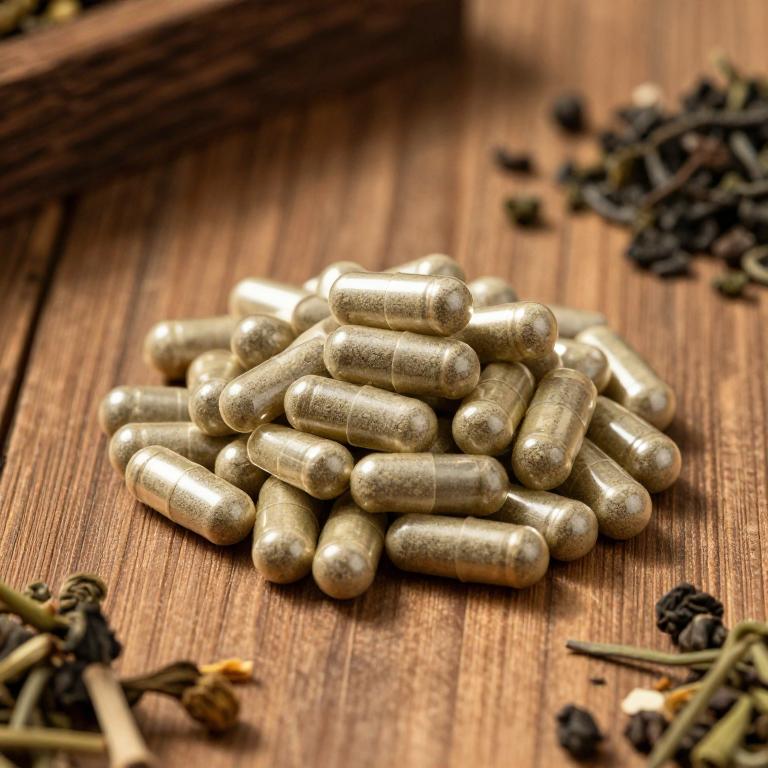
Camellia sinensis, commonly known as the plant from which green tea is derived, has been studied for its potential benefits in managing peptic ulcers due to its high concentration of polyphenols, particularly catechins.
These compounds exhibit antioxidant and anti-inflammatory properties that may help reduce gastric acid secretion and protect the stomach lining. Herbal capsules made from Camellia sinensis are often used as a complementary therapy to conventional treatments for peptic ulcers, such as proton pump inhibitors. However, while some preliminary research suggests possible therapeutic effects, more clinical trials are needed to confirm their efficacy and safety.
It is important to consult a healthcare professional before using Camellia sinensis supplements, especially if you are on other medications for ulcer management.
8. Cumin (Cuminum cyminum)
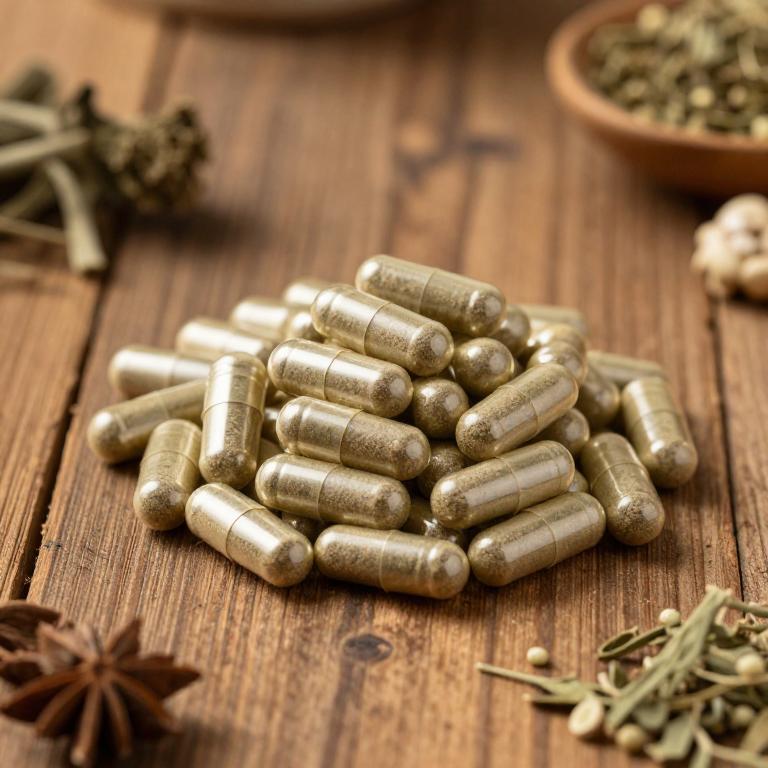
Cuminum cyminum, commonly known as cumin, has been traditionally used in herbal medicine for its potential digestive benefits.
Cumin herbal capsules are often formulated to support gastrointestinal health and may help alleviate symptoms associated with peptic ulcers by reducing inflammation and promoting the healing of the stomach lining. The active compounds in cumin, such as essential oils and flavonoids, are believed to have antimicrobial and antioxidant properties that can combat harmful bacteria like Helicobacter pylori, a common cause of ulcers. While some studies suggest cumin may aid in ulcer management, it is important to consult a healthcare professional before using it as a complementary therapy.
These capsules are generally considered safe for most individuals but should be used in conjunction with standard medical treatments for optimal results.
9. Black pepper (Piper nigrum)
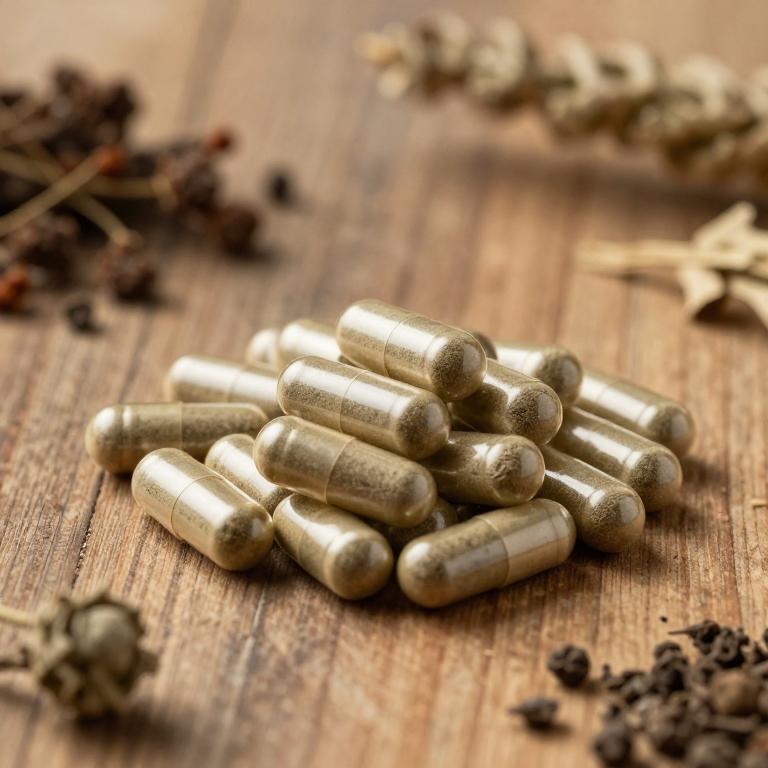
Piper nigrum, commonly known as black pepper, has been traditionally used in herbal medicine for its potential therapeutic properties.
The active compound in black pepper, piperine, is believed to enhance the absorption of other nutrients and may have anti-inflammatory and antimicrobial effects. Herbal capsules containing Piper nigrum are sometimes used as a complementary therapy for peptic ulcers due to their possible role in reducing stomach acid and promoting mucosal healing. However, while some studies suggest its benefits, more clinical research is needed to confirm its efficacy and safety for this condition.
It is important to consult a healthcare professional before using Piper nigrum supplements, especially for individuals with existing gastrointestinal issues.
10. Marshmallow (Althaea officinalis)
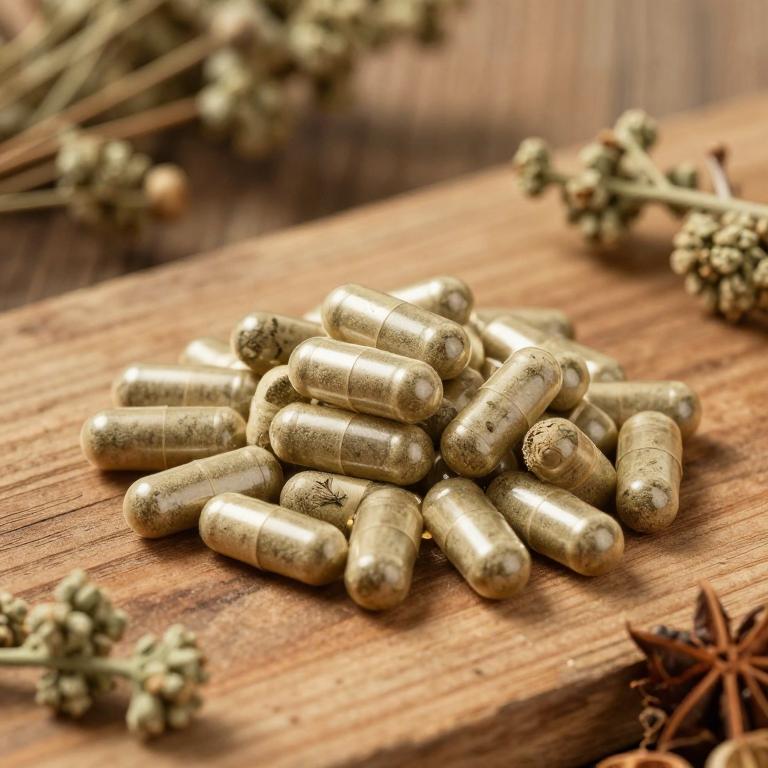
Althaea officinalis, commonly known as marshmallow root, has been traditionally used for its soothing properties and is now available in herbal capsule form to support the treatment of peptic ulcers.
The active compounds in marshmallow root, such as mucilage, form a protective layer over the stomach lining, helping to reduce irritation and inflammation. Clinical studies suggest that Althaea officinalis may aid in the healing of ulcers by promoting tissue repair and reducing gastric acid secretion. As a natural remedy, it is often used as a complementary therapy alongside conventional treatments for ulcers.
However, it is important to consult a healthcare professional before using marshmallow root capsules, especially if taking other medications or suffering from underlying health conditions.